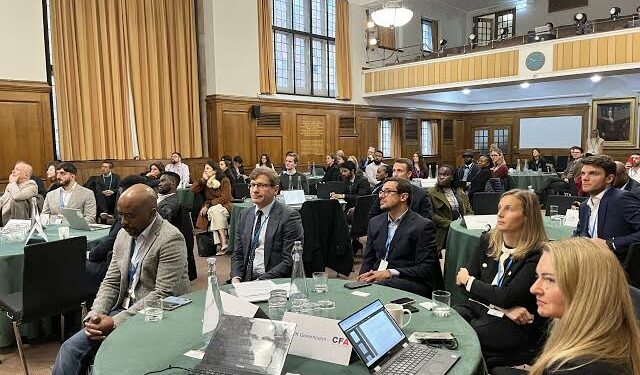A groundbreaking event held at Church House in Westminster brought together key UK Government ministers, investors, and Ugandan project developers to showcase sustainable, climate-focused ventures that could transform Uganda’s future.
The event, which aimed to foster investment in Uganda’s growing green economy, saw notable interventions from Lord Collins, the UK Minister for Africa, and Kerry McCarthy, the UK Minister for Climate, who both underscored the importance of collaborative efforts to combat climate change and promote sustainable growth.
Six pioneering Ugandan businesses participated in the event, seeking a combined total of nearly US$ 83 million in investment. These companies, operating in the waste, transport, energy, and agriculture sectors, are working on projects that promise not only to cut carbon emissions but also to bring tangible benefits to local communities across Uganda.
Opening the event, Lord Collins emphasized the UK’s commitment to fostering sustainable, mutual economic growth globally, particularly in Africa. He highlighted the UK’s long-standing partnership with Uganda and the importance of projects that address both environmental and economic challenges.
“Our focus as the UK Government is clear – we want sustainable, mutual economic growth globally, and we want to protect climate and nature,” Lord Collins said. “The UK’s partnership with CFA Uganda showcases our commitment to tackling climate change, our support for business, and our longstanding partnership with Uganda. I have been hugely impressed by the investment opportunities that these businesses offer and their commitment to cutting carbon emissions. They are truly an incredible advert for Ugandan innovation.”
Ugandan Projects at the Forefront of Climate Action
The six Ugandan companies seeking investment at the event represent a diverse range of sectors, each addressing critical issues like waste management, renewable energy, and sustainable agriculture. These include;
Agrosahas International Private Limited: This agritech platform focuses on providing organic, precision farming services through artificial intelligence and machine learning, as well as satellite-based tools that help farmers optimize crop yields. The project aims to boost Uganda’s agricultural productivity while minimizing its environmental footprint.
Eco Brixs: A company dedicated to recycling plastic waste into PET flakes, Eco Brixs supplies these materials to factories for reuse in other products. The initiative not only helps reduce plastic pollution but also creates a market for recycled materials in Uganda and abroad.
Ecoplastile Limited: This closed-loop waste management service recycles waste into high-performance, low-carbon construction materials. By offering cash incentives to individuals who recycle, Ecoplastile encourages a circular economy model while addressing Uganda’s growing need for sustainable building materials.
Kwanza Infrastructure Group: Focused on hydroelectric power projects, Kwanza plans to harness the potential of the Sisi, Simu, and Ngenge rivers in Eastern Uganda using run-of-river technology. The projects are expected to provide electricity to over 22,000 households, reducing reliance on fossil fuels and supporting local development.
Protone Energies Limited: This company specializes in solar energy battery refurbishment, providing services that extend the lifespan of batteries at a fraction of the cost of new ones. Protone’s approach involves refurbishing decommissioned batteries and scheduling maintenance, supporting Uganda’s transition to sustainable energy solutions.
Silver Fleet Limited: Operating in the transport sector, Silver Fleet is focused on transitioning taxi companies in Uganda to cleaner, more sustainable energy by providing electric vehicle solutions and a mobile app that facilitates fleet management.
A Collaborative Approach to Investment and Climate Goals
The event also included a panel discussion on the enabling environment for investment in Uganda and East Africa, where business leaders and investors shared their experiences, challenges, and opportunities in the region. British High Commissioner to Uganda, Lisa Chesney MBE, delivered a powerful message on the crucial role of the private sector in achieving climate goals.
“Without the efforts of the private sector, governments will not be able to meet their climate goals,” Chesney remarked.
“I commend each of these projects for the role they are playing to safeguard Uganda’s future against climate change.”
The event was not only a celebration of Ugandan innovation but also a step toward attracting the investment needed to scale these transformative projects. With the UK Government’s backing, the projects presented have the potential to deliver both environmental and economic benefits, helping Uganda meet its climate targets and driving sustainable development across the region.
Do you have a story in your community or an opinion to share with us: Email us at editorial@watchdoguganda.com













